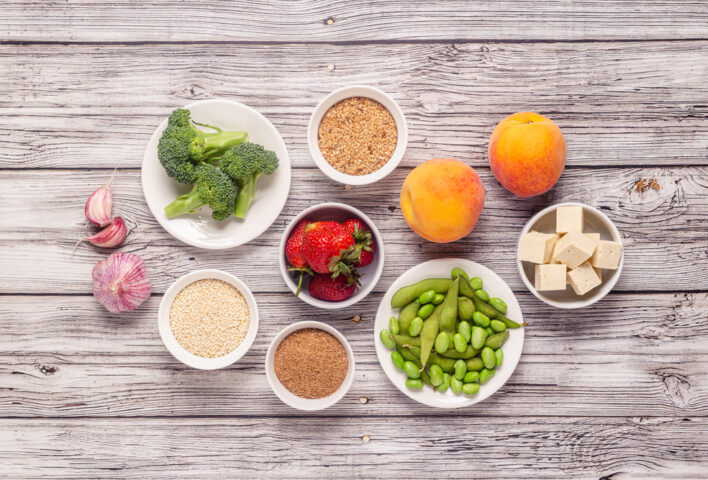Ask the Dietitian: Menopause
What are the key topics when thinking about diet and menopause? Registered dietitian Rachael Hunter explores this question in her latest column.

Over the past few years, the conversation around menopause seems to have moved from the shadows to the spotlight. It is great that we can start to reduce the stigma attached to this stage in many women’s lives, but more conversations can also lead to more false information. This article will cover some key topics that tend to pop up when thinking about diet and menopause.
Plant oestrogens
There is some evidence that having a regular intake of plant oestrogens such as soya and linseeds over two or three months can help with symptoms such as hot flushes. Ideally, one should have two to three portions of these foods a day and spread them out rather than have them all in one go.
The positives of trialling an increase in these foods is that often vegetarian diets already have some soya products in, such as soya mince or soya milk, so it might only mean a small change to the diet. However, the downside is that not everyone will get the benefit. It will vary from person to person. If you decide to give this change a go and introduce some soya dairy alternatives, remember to check that they also have added calcium and vitamin D, as this is important during menopause too.
‘Trigger’ foods
Some people find that hot flushes and night sweats can be worse after eating certain foods, while others may not notice any link at all. The common culprits tend to be alcohol, caffeine, and spicy foods. Keeping a food and symptom diary can be useful, looking back at what foods you have eaten when experiencing symptoms. As always, it is important to also keep track of whether you feel the benefit from excluding foods, and if there is no change in symptoms then to consider reintroducing them again to help keep the diet as varied and balanced as possible.
Balanced eating
Having a balanced diet is important throughout our whole lives, and the menopause is no exception. Muscle mass tends to reduce during menopause, and this means a slowing down of the metabolism and a reduction in the amount of energy the body needs each day. This is a good time to tune into the body, noticing whether you are hungry or not before eating, and when you become full during a meal.
Another side effect of menopause is the slowing down of the digestive system which can lead to constipation and bloating. We should all be eating more fibre, and in menopause it can also help to fight these symptoms. Make sure you are having enough fruit and vegetables, opt for brown carbohydrates such as rice and pasta, and have good amounts of beans and pulses.
Supplements
The menopause is becoming big business, and there are a number of supplements available to buy. Nothing is specifically recommended, and more studies are needed to check they are safe. It is always good to let your GP know if you plan to take a supplement in case it interacts with other medications.
